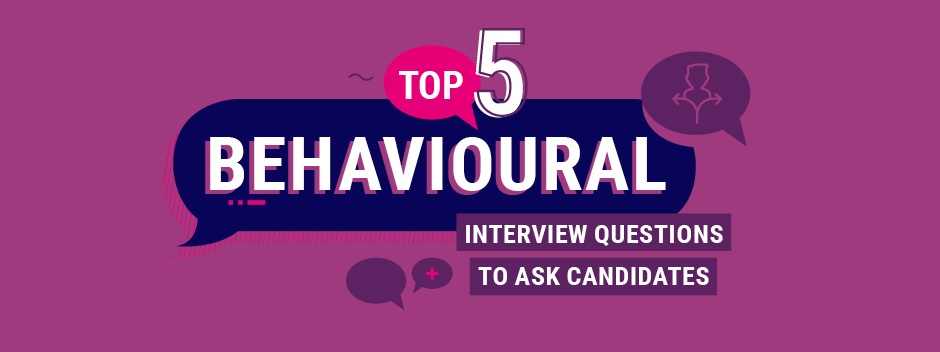It’s a commonly held view in recruitment circles that past behaviour is a strong predictor of future behaviours, but how can you tell how your future employee is likely to act?
It’s one thing for a candidate to know the theory, another to actually do it, so the key is to ask the candidate to recall a past experience and explain how they handled it.
SEEK Talent Acquisition Specialist Michael Blythe says behavioural-based questions are an important technique for evaluating a candidate’s suitability.
“The CV is like the script – it identifies the hard skills and can be written with fact or fiction,” says Blythe, “but the interview is where you can explore the soft skills and bring the CV to life by asking the candidate to share real experiences. “
The SEEK Interview Builder features a selection of best-practice questions employers and recruiters can use to design their own interview template.
These are the five questions most commonly asked to assess behaviour:
The top 5 most-asked behavioural interview questions
1) At times you will be asked to do many things at once. How do you prioritise your tasks?
Launch Recruitment’s Principal Consultant, Karen Aldrich, says this question can reveal how outcomes focused a person is.
“Many people can be busy but not achieving what they need to achieve,” she says.
“You want to hear them talk through the process behind their decision and show that they will think strategically to align those priorities to the goals of the organisation.”
2) Have you ever worked in a role where priorities and goals have changed frequently, what were they and how did you ensure you were successful in that environment?
In a fast-paced world, organisations need agility to keep up with changing trends, new technologies and competitors.
Aldrich says this question is a good one to ask if you need a candidate who is adaptable and able to manage the stresses and conflicts that can arise when targets, goals and projects are altered.
“If you are asking this question it is important to your business, so you don’t want to hire someone that will be unhappy because of it,” she says.
3) Can you share with me some constructive feedback you’ve received and how you’ve used that feedback to chance the way you work?
This is all about self-awareness and honesty, says Blythe.
It can be a tough one for candidates because it requires them to show vulnerability and put their ego aside, but a good candidate, says Blythe, will own the feedback and show a growth mindset.
Red flags, however, would be someone who shows defensiveness, ego or says they have never had constructive feedback.
“It reveals a lack of coachability,” says Aldrich.
4) Tell me about a time when you’ve given a team member feedback? How did you approach it and what was the outcome?
Empathy and professionalism are key things to listen out for in this question.
You want to hear someone has emotional intelligence, is a team player and whether they took someone aside to have a chat or talked to them out on the floor, and if they put thought into their approach or blurted out the feedback on the spot.
“That’s the stuff that causes massive conflict in a workplace,” says Aldrich. ”If I’m hiring someone I want to know if they are going to be a conflict causer.”
5) Tell me about a project or idea that was implemented or executed upon successfully because of your efforts?
A candidate who can show influence, execution, problem solving and a proficiency at navigating road blocks will leave you with confidence in their ability to initiate new ideas for your organisation, says Blythe.
The best responses, he says, will consider the impact to others and demonstrate an enhanced or innovative way of doing things.
Why behaviour matters
A highly-skilled employee can be a valuable asset, but not if they are going to create disharmony.
Gaining an insight into the way they behave can be critical to their success in the role and is why behavioural-based questions are so popular with recruiters.
“The difference one person can make to the culture of the business is huge, especially in small to medium enterprises,” says Aldrich.
“You want to know if they are going to come in and ruffle feathers.”
Blythe says you can minimise the risks if you take the time to consider the core competencies needed for your role - such as time management, leadership or adaptability - and match those with behavioural-based questions you hope will identify and highlight those wonderful attributes you are looking for.
For help on finding the right behavioural questions for your next interview, visit the SEEK Interview Builder.

